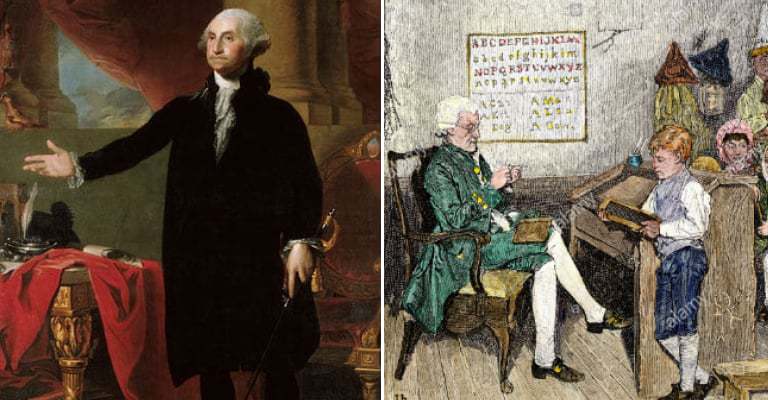As a youth, presumably as an exercise in penmanship, George Washington wrote out 110 Rules of Civility in a copybook. Based on Jesuit training, the rules were translated from French to English around 1640. They were translated by Francis Hawkins and were originally entitled Youths Behavior, or Decency in Behavior Amongst Men. Some of them seem trivial, some common sense (which as Voltaire famously noted is not so common), and some impossibly dated if taken literally. When comparing the Rules to the facts of Washington’s life it is clear that he took some, if not all, of the Rules seriously.
The Rules were originally written to describe proper behavior in what was then the peak of society in France, the aristocracy. They refer to courtesy, which originally meant proper behavior before the court. The French word for a Knight is chevalier, from whence comes the English word chivalry, which refers to the ideals present in a knight such as honor, integrity, and fairness to all. Washington spent the better part of his life in opposition to an aristocracy, determined to ensure that all are represented fairly and equally, and his Rules of Civility, despite being originally for the King’s Court, are a means of treating all persons the same.

Here are some of Washington’s Rules of Civility, which he copied before his sixteenth birthday, but followed all of his life. The punctuation, grammar, and strange capitalization are Washington’s own.

Consideration towards others
The first twenty three Rules of Civility are about showing others consideration, and discuss, in the high flown language of Washington’s day, how to demonstrate this consideration in public. “If you Cough, Sneeze, or Yawn, do it not loud but Privately; and Speak Not in your Yawning, but put Your handkerchief or Hand before your face and turn aside.” It seems simple enough, basic manners, but a quick glance around virtually any public place or gathering will allow the observer to discover that this Rule of Civility is in widespread disuse.
The thirteenth Rule of Civility is hopefully no longer germane, as it in part directs, “Kill no Vermin as fleas, lice, ticks etc. in the Sight of Others…” In this admonition there is no hint of any guilt for being infested with fleas, lice, and other vermin, which in Washington’s day and those of the French Jesuits who originally composed the Rules was fairly common, even among the wealthy elite. The Rule is solicitous of the feelings of companions and other persons, rather than of one’s own. It simply means to be more concerned for others comfort than for self.
“Be no Flatterer, neither Play with any that delights not to be Play’d Withal”, is another of the Rules which appears to have been taken seriously by Washington. What is flattery today and what was flattery in his day are completely different things, the daily conversation of Washington’s time was filled with honorifics such as “Your Excellency” and “Your Grace”. Play means tease, and here is an ageless reminder that some people do not like to be teased, or can’t tell when they are being teased, and as such should not be teased, especially not for one’s self-gratification.
“Show not yourself glad at the Misfortune of another though he were your enemy.” Washington demonstrated an understanding of this Rule throughout his life, on battlefields, in his correspondence with political foes, and in his business dealings. Today it could be interpreted as simple good sportsmanship. Washington throughout his life was highly competitive, when riding to hounds, throwing a bar (a game in Colonial Virginia in which participants took turns throwing a heavy iron rod to see who could throw the farthest), or in his business. This Rule demands humility in victory, among other things.
“The Gestures of the Body must be Suited to the discourse you are upon.” Once again, in consideration of one’s audience, flamboyant displays of hands and arms should be avoided if they distract from the verbal message being uttered. It would be difficult to decide what was too flamboyant in that flamboyant age. Throughout his life Washington was reserved and dignified when speaking, an affectation which many have attributed to his teeth, which slipped if he became too animated. He displayed the same reserve as a young man, so perhaps it was this rule which he followed instead.

